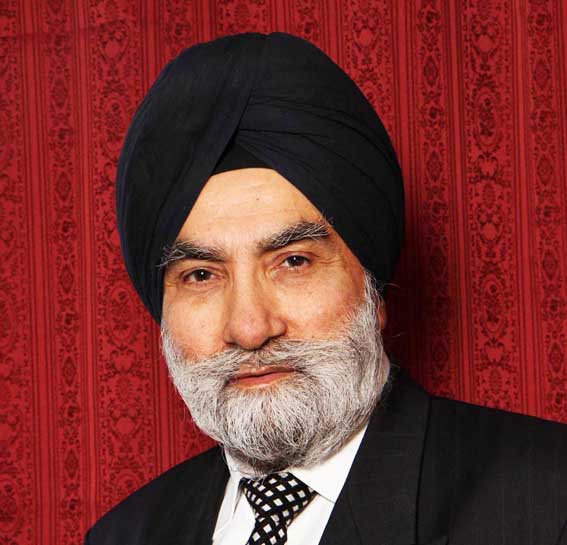British Sikh Regiment Would be In Line with British Army Tradition

There are 500,000 Sikhs in the United Kingdom. In the past, hundreds of thousands of Sikhs voluntarily fought with the British Army in the two World wars and many of them died in the cause of freedom. They were among the most highly decorated soldiers in history. Today, British Sikhs contribute a huge amount to the economy and to public life in the UK. (Message from then Prime Minister Tony Blair on 1st November 2001, to the Maharajah Duleep Singh Centenary Trust.)
The background to the topic this week is a submission by the British Sikh Federation to the Defence Committee of the Parliament in support of creating a Sikh Regiment in the UK. One of the attachments to the submission is my research paper: Anglo-Sikh Relations and the World Wars*.
Over two hundred years ago, history brought two nations tother. These were Britain and the Sikh Kingdom of greater Panjab. Their mutual respect for each other, first as warriors, and later, as allies, grew into lasting friendship. Sikhs became trustworthy allies of the British through better understanding and mutually shared values.
Yet, Sikhs had no hesitation in leading the freedom movement in India against British colonial rule in line with egalitarian Sikh ideology and the global freedom movement against colonial rule. True friendship has to be based on mutual respect as equals regarding culture, way of life and values.
When the time came, the Sikhs were the first in India to side with the Western powers against authoritarian regimes. Today, well over half a million Sikhs are loyal, law-abiding and hardworking citizens of the UK. They are net contributors to the UK economy and share British values and way of life while retaining own well-earned Sikh identity in the British plural society.
It is not surprising that, due to their proud military tradition, they also seek a distinct place in the defence of the country through the creation a British Sikh Regiment. However, as the British Sikh Federation submission points out, this is only in the context of some new regiments, to quote: Some new UK regiments could be created and raised based on the present-day demographics and geographical background of groups of people, with UK prefixes and suffixes, for example, Midlands African Rifles Regiment, Midlands Sikh Regiment, Midlands Panjabi Regiment, etc
The submission is appropriately headed: Improving and Increasing the size of UK Armed Forces &ndash thinking outside the traditional boxes. It refers to recent discussions in the House of Lords between Lords Vernon Coaker and Kuldip Singh Sahota, about improving and increasing the size of UK Armed Forces as desired in the recent Strategic Defence Review, and creating a Sikh Regiment.
In the UK, we are going through a highly sensitive time. There is social unrest and there is a need for every community to earn British citizenship through loyalty, commitment to the defence of the country. The defence budget is being increased to meet current and future challenges. A Sikh Regiment will go a long way to further strengthen Anglo-Sikh relations while promoting distinct Sikh identity in British pluralism.
This column has always recommended full Sikh participation in British politics by joining Parties of own choice while also keeping in mind the Sikh Manifesto**. Sikh values complement British democratic values based on rule of law and a just plural society.
Anglo-Sikh Relations and World Wars:
https://library.gurmat.info/download/anglo-sikh-relations-and-the-world-wars-gurmukh-singh.pdf
Sikh Manifestos: Sikh Missionary Society (U.K.)
Gurmukh Singh OBE
E-mail: sewauk2005@yahoo.co.uk
https://www.sikhiwiki.org/index.php/Gurmukh_Singh_OBE